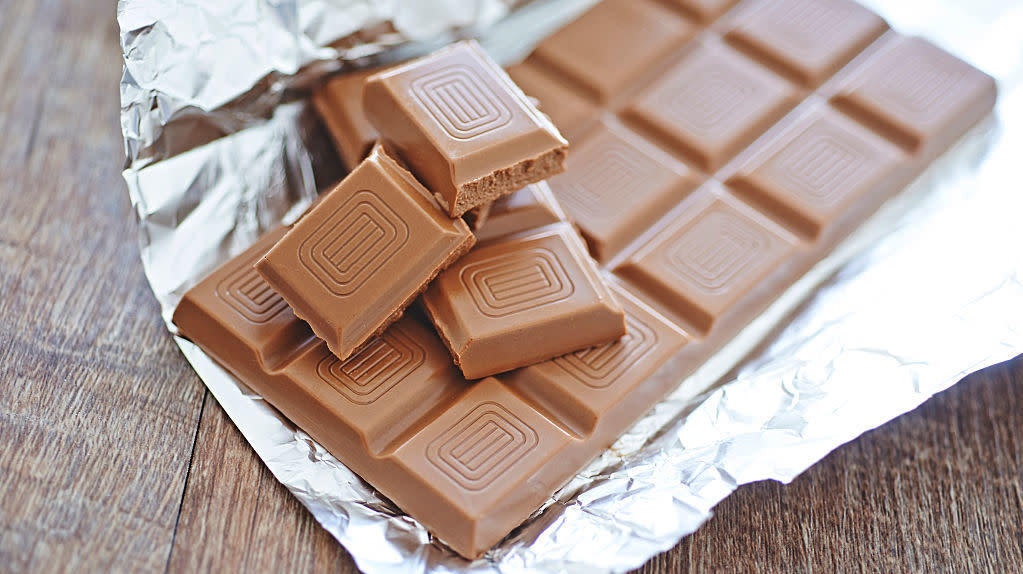How Did Milk Chocolate Get Such A Bad Rep?
If you happen to be in the presence of some die-hard chocolate lovers, the mere mention of milk in the same sentence as chocolate will immediately result in you being asked to leave the room. But did you ever wonder why that is? When it comes down to it, milk chocolate is delicious, and a good, silky version can't be beat. Why does milk chocolate get dunked on?
Huffington Post takes a look into this chocolatey question. Jeni Britton Bauer, owner and founder of Jeni's Splendid Ice Creams and an unapologetic milk chocolate fan, explained that when milk proteins are added to bitter chocolate, its flavor is softened by the cocoa butter and dairy. The texture will become less prone toward brittleness. "You actually end up getting a lot of the flavor quicker because it melts faster on your tongue," Britton Bauer explained. "So even though it's less bitter or sharp, you get the nuances of the chocolate faster."
Jocelyn Gragg of Jardi Chocolates, in Chamblee, Georgia, says her chocolate preference is dependent on how she's feeling at the moment. "I feel about chocolate the same way I feel about coffee. Sometimes, I really want an espresso, and sometimes I want an affogato. Your mood changes," she said. "If it's good milk chocolate, I think it deserves as much respect as anything else."
When asked as to why people seem to hate on milk chocolate so much, Gragg responded, "I blame Hershey. I think people have gotten so used to the idea that milk chocolate is a commodity product and not a specialty product."
Milk chocolate was created in 1867 when chocolatier Daniel Peter mixed Henri Nestle's powdered milk with cocoa butter. In 1900 Milton Hershey discovered how to mass-produce it, and if candy aisles in the stores are any indication, the success hasn't stopped.
In the 1980's, when French brand Valrhona touched down in the United States, dark chocolate started making its presence known to Americans. The manufacturer began labeling chocolates of single origin and cocoa percentages; the products were mainly aimed at pastry chefs at the time.
"I think that's when dark chocolate started to become very prominent and people started saying, 'Oh, this 70% bar must be very special and different than the 'low-quality' milk chocolate I've been eating,'" said author and chocolate tour guide Megan Giller. "Valrhona, of course, was much higher-quality chocolate than all the milk chocolate we'd been eating, but they also make milk chocolate that's equally delicious and high-quality, so it doesn't necessarily mean that milk chocolate as a category is bad."
And in the 1990's, the word "antioxidant" came into play. Antioxidants reduce damage to cells by free radicals, and was suddenly everywhere as a buzzword. Dark chocolate has flavonoids (which are antioxidants), so it got lumped in there with healthier foods like fruits and vegetables. And it's true, milk chocolate has less antioxidants, but it's otherwise nutritionally similar to dark chocolate in terms of calories, fat content, and sugar. So next time, when your internal food snob tries to slap that milk chocolate out of your hand, treat yourself and enjoy what you like.
